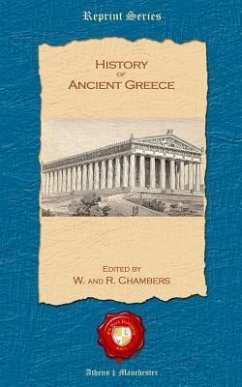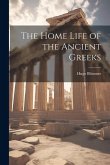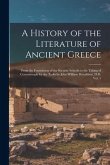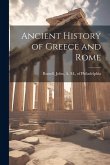...The legendary history of Greece begins with a history of the gods, whom it represents as both pre-existent and superior to men; and it gradually descends first to heroes, then to the ordinary race of human beings. The numerous gods of ancient Greece were conceived after the model of human nature, but not on the same scale. They had the same appetites, passions, and affections that disturb the soul of man; but were at the same time invested with immensely greater powers, and gifted with immortality. Beings thus imagined, were, of course, peculiarly suitable subjects for adventure and narrative; and the inventive fancy of the Greeks had full play in the fabrication of legends illustrative of their respective characters and attributes. The earliest mythical events are the proceedings of certain gigantic agents-the collision of certain terrific forces, which were ultimately reduced under the more orderly government of Zeus or Jupiter, with whom begins a new dynasty, and a different order of beings. Zeus divided the sovereignty of the universe with his two brothers-Poseidon (Neptune) and Hades (Pluto). He retained for himself the eather and the atmosphere, together with the general presiding function; Poseidon obtaining the sea, and administering subterranean forces generally while Hades ruled the world of shades. These deities, with their sisters and divine progeny, comprehended the gods worshipped by the early Greeks. Twelve were especially called the great Olympic gods, being supposed to dwell on the heights of Mount Olympus, and to form the divine agora, or council of the gods, being supposed to dwell. We must briefly introduce these twelve to the reader, with their leading characteristics; and in doing so, we shall give those latin synonymous for their names, which, as they are the most familiar, will hereafter be used. Zeus...
Hinweis: Dieser Artikel kann nur an eine deutsche Lieferadresse ausgeliefert werden.
Hinweis: Dieser Artikel kann nur an eine deutsche Lieferadresse ausgeliefert werden.








